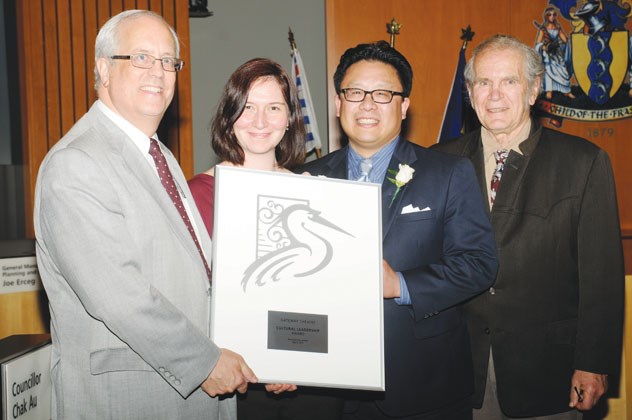As a 30-year culture staple in Richmond, Gateway Theatre is now looking to evolve with the dynamic community it serves.
In an unprecedented move, it presented a 15-year strategic plan to city council at Tuesday evening’s Parks, Recreation and Culture committee.
Gateway 2028 plans to introduce inclusive and culturally diverse programming, divided into three phases, each spanning five years.
“The vision speaks to theatres across Canada, where more than anything, sustainability is on everybody’s mind,” said Jovanni Sy, who took over the artistic director post from Simon Johnston in April, 2012. “We’re all concerned about the future of the theatre, so this strategy speaks to its longevity.”
Sy sees the strategy not as a break from the past, but as an opportunity to build upon Johnston’s vision.
The 15-year timeline will allow the company to implement each phase of the strategy without taking the public by surprise, explained Sy. Strongholds, such as the professional series, will remain, for example.
“Wholesale change can be jarring for the public and for us as well,” said Sy. “Now just seemed like the time to do it. I’m new to my post, Suzanne (Haines) has also just taken over as general manager. It’s more feasible for us to do it in increments as well.”
One of the more innovative changes will occur in Phase III of the process, with the introduction of the Gateway Pass. The pass provides a theatre-goer with unlimited access to all four subscription series for one monthly fee.
It means pass holders can watch a favourite play more than once or see a different show from any series on any night of the week.
“I think the pass will change the way people think about the theatre,” said Sy. “We’re finding people are moving away from the subscription model. It’s no longer a model that’s working the way it used to. It provides individual choice and allows for something new and exciting.”
First, the six annual shows produced (four in the MainStage and two in Studio B) will be renamed the Gateway Signature Series.
Then, next August, the Gateway to the Pacific Festival launches as part of phase one. The inaugural festival will feature three contemporary theatrical works from Hong Kong, in Cantonese with English subtitles.
By 2016, the festival will become the Gateway Pacific Series — the first subscription series produced by a Canadian theatre company in a language other than English or French.
“Gateway has always been a celebration of Richmond,” said Sy. “So with this strategy, we hope to hit upon the strengths of the community. We’re also going to incorporate more youth-focused programming and innovative performances.”
These will begin in phase two with the Gateway Junior Series — three plays for audiences aged four-18.
The Gateway Greenhouse Series follows in phase three, which features boundary-pushing plays. Together, by 2028, there will be four subscription series offering year-round access to the theatre, as well as, the Gateway Pass.
“The professional series is not changing and our access to the community won’t change. People have a personal relationship with the space. It means something to them.”
For more information, visit www.gatewaytheatre.com.



